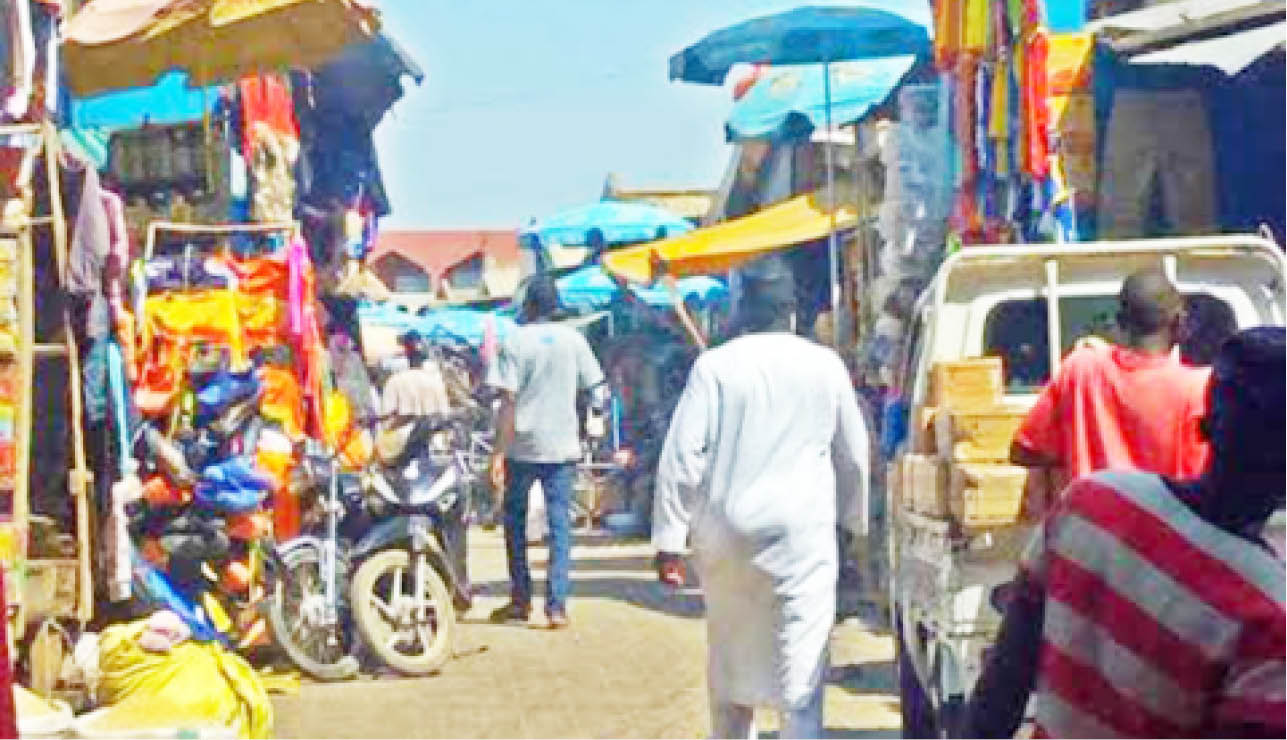- It’s in their best interest – KSG
Recently, the Kano State Government introduced a new policy to raise money from traders in the Sabon Gari market. But the traders are raising objections, saying the decision is anti-people, Daily Trust reports.
There has been controversy in the Muhammadu Abubakar Rimi Market in Sabon Gari, Kano, between shop owners and other traders on one hand and the state government on the other, over a new policy ordering the renewal of each shop’s leasing fee at the rate of N1million.
The new policy, as announced by the management board of the market, according to the traders, also requires shop owners to pay N500,000 per shop as against the N12,000 they paid annually. This, according to them, will threaten the existence of thousands of small and medium businesses in the biggest market in Nigeria’s Centre of Commerce.
Built in the 1980s, the market, popularly known as Yankura or Sabongari, one of the biggest in the North, and named after the first civilian governor of the state, Abubakar Rimi, is located in the Sabon Gari area of Fagge Local Government in Kano metropolis. It has over 12,000 shops.
The recent controversy has led some of the traders to institute a legal action against the state government, asking the court to stop the move, an action that made the government to threaten those who dragged her to court with eviction notices over noncompliance with its policies.
How the controversy started
Daily Trust on Sunday gathered that the problem started when the state, through the market Board, realised that most of those who were initially allocated the shops are no longer its real occupants. Most of them have either sold them to third parties or have died and their children inherited the shops.
A source working with the market Board, who pleaded anonymity because he is not authorised to speak to journalists, revealed that the state government state discovered that most of these shop owners sold the shops between N15million to N30million, only to pay a meager sum of N12,000 to the government as annual revenue.
When contacted, the Managing Director of the Market Management Board, Alhaji Uba Zubairu Yakasai, confirmed the increase but said it was state government’s decision, not his.
He said, “It is true that the state government has ordered all shop owners to renew their lease at the rate of N1million per shop, which will be valid for the next 25 years. I am not the one who increased it.’’

On why the traders were not given a prior notice before the hike, Yakasai said, “If as a landlord you decide to raise your rent do you have to hear from your tenant or give him notice?
“That’s exactly the case with them. They are only renting the shops. Some of them sold the shops to third parties without government’s consent,’’ he said.
There was also the issue of solar energy installed by the market Board, in collaboration with a private energy firm to connect all the shops in the market with the new solar grid. The decision followed the fire that razed the market in 2016, which was attributed to indiscriminate use of power generators; hence the migration to the new energy solution.
The policy, however, was resisted by some traders who preferred to use their independent solar sources as against the corporate provision that requires them to pay on a weekly basis.
Consequently, the market board forcefully started removing the solar panels of individual traders who refused to connect to its grid.
Govt threatens traders with eviction
Mustapha Sani Masukwani, one of the traders served with an eviction notice by the Kano State Government, said about six of them were countersued by the management of the market, threatening to seize their shops for noncompliance with laid down rules.
Masukwani, who is also the leader of the Footwear Sellers Association in the market, said, “The problem, according to them, is from the solar energy installed in the market. They are threatening to punish those who refused to use it with eviction from the market. But that is not true. I have been using it since it was first installed in 2016.
“They actually have a hidden motive but chose to use this as cover. The real issue is that six of us resisted the new policy of renewing our leasing fee at the rate of N1million and subsequent payment of N500,000 per shop annually.

“We rejected it and even dragged the state government to court, asking for an interim injunction. That’s why they are using eviction on us as a threat.
“They dragged six of us to another court in Airport Road, saying we are causing chaos in the market. Even that issue of increase is still hearsay, no one told us to do that officially.
“They said all shop owners must come with national identity cards, e-Passport, revenue receipts for six years and original shop allocation documents for verification.
“But the fact is that more than 80 per cent of us don’t have these documents because of the fire that razed this market some four years back, and the fact that some of us bought it from those they were allocated to, or inherited it from our parents,’’ Masukwani said.
He appealed to the state government to reconsider the amount to something affordable, adding that many businesses may be forced to shut down or leave the market, thereby increasing the number of the unemployed in the state.
“There are shops you can’t get goods of N500,000, yet people survive. If you say they must pay you N1.5million now, where will they get it from? He asked.
He, however, said it was illegal for any shop owner to sell it without government’s consent.
“Most of these shops are no longer occupied by those they were initially allocated to. Most of them have transferred ownership to others at huge prices. We just asked them to pay N1milliom as leasing fee and N500,000 annual revenue, yet they are complaining, even though it is for their own good,’’ the managing director added.
Govt’s decision ill-timed – AMATA
The chairman of the Amalgamated Traders and Artisans Association (AMATA) in the market, Alhaji Ado Bilyaminu, said the decision was ill-timed, considering the fact that many of them have not fully recovered from the COVID-19 pandemic.
According to him, “When fire razed this market, many of us had to sell some properties, including our houses, to rebuild and restock our shops. Then came the COVID-19 pandemic, which most of us have not fully recovered from up till now. If this decision is not looked at again, only God knows how many traders would either be paralysed or forced to leave the market.
“We, therefore, call on Governor Abdullahi Umar Ganduje to reverse this decision as many of us can’t afford it.’’
He also said the traders would be in a serious dilemma if the governor decides not to listen to them.
Alhaji Mustapha Masukwani further said, “The decision is not only unpopular, it is already giving the governor a bad name among traders. However, we are still optimistic that it will be reconsidered.’’
When contacted, the chairman of the Traders Welfare Association, Alhaji Alin Bagadaza, said they were already discussing with the state government, with a view to renegotiating the issue and any further comment could jeopardise their effort.

 Join Daily Trust WhatsApp Community For Quick Access To News and Happenings Around You.
Join Daily Trust WhatsApp Community For Quick Access To News and Happenings Around You.


